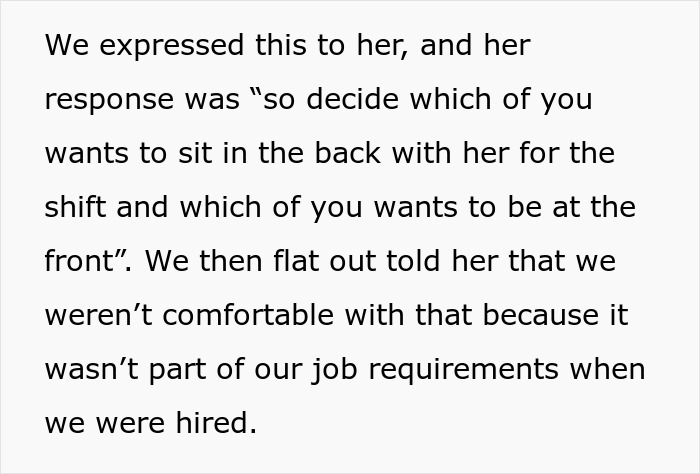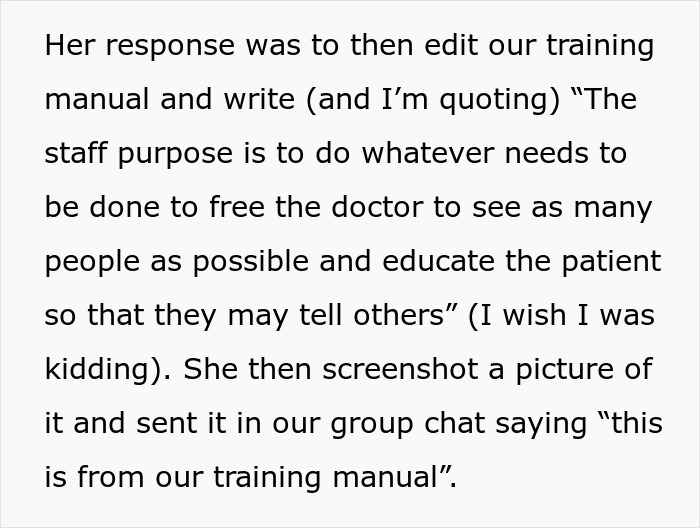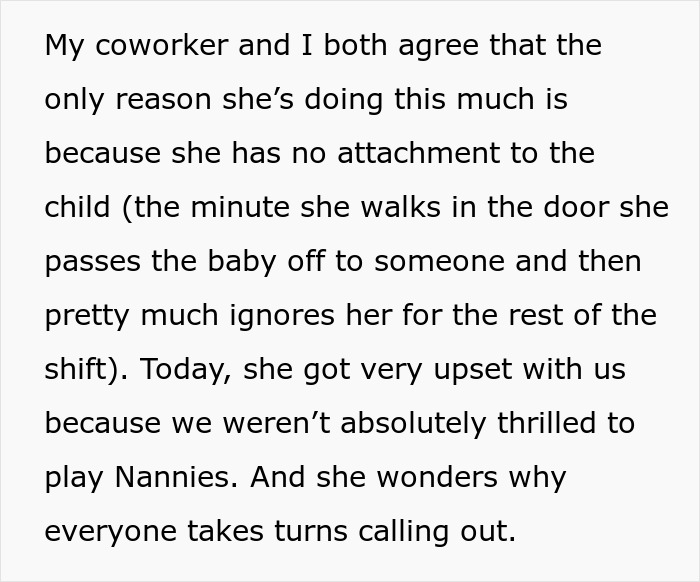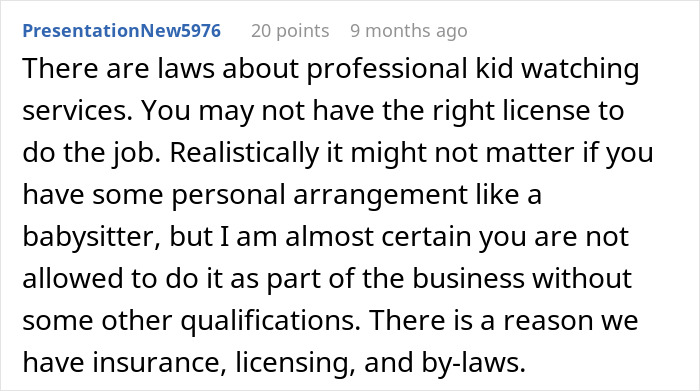It’s astonishing how many employees are expected to complete tasks way outside their job description. Some bosses even go as far as assigning responsibilities that are just as bizarre as they are beyond their worker’s call of duty. In fact, one in ten people report working at a job that requires performing unusual tasks like spying on coworkers or shredding paper by hand.
Redditor thathallandoatesgirl, who was working as a receptionist, contributed to this list by sharing her boss’s demands to babysit her infant. The original poster (OP) expressed discomfort about caring for a child and having additional duties without extra pay, but she was completely ignored. Confused about how to handle this situation, she turned to the r/antiwork community for netizens’ unbiased opinions.
Scroll down to find the full story and a conversation with Sasha Farley, MSOD, leadership development and organizational culture consultant, who kindly agreed to tell us more about unreasonable requests at the workplace.
Refusing to perform unreasonable tasks at work can be challenging

Image credits: Anna Shvets / pexels (not the actual photo)
This woman had to decline to babysit her boss’s infant, which made it that much more bizarre



Image credits: wichayada69 / pexels (not the actual photo)


Image credits: thathallandoatesgirl
“As a general rule, you should only be expected to perform tasks related in some way to your specific role”
Bored Panda reached out to leadership development and organizational culture consultant Sasha Farley, MSOD, who says, “As a general rule, you should only be expected to perform tasks related in some way to your specific role. This includes when your job duties say, “other duties as assigned.” In a general sense, those “other duties” should relate to your role in some way. So being asked to perform tasks completely unrelated to your job role is not appropriate.
Picking up lunch for a meeting or stopping for some office supplies may easily fall under the category of work-related duties. But when a boss asks to pick up their dry cleaning, purchase a gift for a spouse, or take care of their child, it already seems like running their personal errands.
Such requests can hinder employees’ work quality, disrupt the work-life balance, and even impact their overall job satisfaction. Therefore, it’s important to address unreasonable demands and establish healthy boundaries.
If faced with an unreasonable request, Farley advises saying, “Unfortunately, I will not be able to do X task. I was hired to do X job, and these additional requests for my time are outside the scope of my job duties. I am dedicated to this company’s success, which is reliant on me completing my assigned responsibilities, and completing X task will interfere with my ability to complete my job duties. However, I am happy to support you in tasks that relate to my job and will support the company’s success.”
She explains further, “This type of response can ground your boundary setting to concrete job duties (usually shared at the very least during job interviews) and subtly remind your manager that you are not there solely to serve them but to support the larger company’s overall success.”
She also mentions that this can be a great time to document and define your general role and responsibilities if you haven’t accomplished that previously. “Very rarely will managers put these unusual requests in writing, and asking for this type of clarification can help them think about the appropriateness of their requests and help you both gain added clarity around their expectations of you,” she adds.
In cases where trying to establish healthy boundaries escalates into disagreements, it’s best to reevaluate the situation once more
In cases where trying to establish healthy boundaries escalates into disagreements, Farley recommends knowing your company‘s policies and how it handles conflict. “If your management has ignored your boundary-setting attempts, it’s at this point that you will need to decide how much potential risk you may want to take on by continuing to refuse to perform the task.
There are many options you can take, from formal to informal, and it’s up to you to decide what option you are most comfortable with (in the end, you have to live with any potential negative impacts). So I encourage you to consider the pros and cons of various options before deciding on one.”
Before taking this to formal channels like HR, she suggests trying to smooth things over while standing up for your boundaries once more. “For example, when continuing to face pushback, it can sometimes be very helpful to have a direct conversation with your manager about the reason they are asking you to do these unusual tasks outside of your job duties.”
She further encourages to reflect on what both parties have shared. Trying to form a connection between employer and employee and understanding the other person’s perspective might help de-escalate any conflict and move forward with more clarity.
Farley concludes by saying, “These situations can be very tricky to navigate, and it can take a lot of courage to push back on management. While there are many different approaches and advice people can give, there is no one right answer.
In these situations, I encourage people to consider each option and think about the potential negative and positive outcomes based on their understanding of their company’s culture. In the end, it’s important to trust their instincts on the best approach to take and to also remember that no matter the company culture, everyone deserves to be in a place where they feel respected and comfortable.”
The OP provided more information in the comments






Meanwhile, commenters were counting the boss’s red flags


























 English (US) ·
English (US) ·